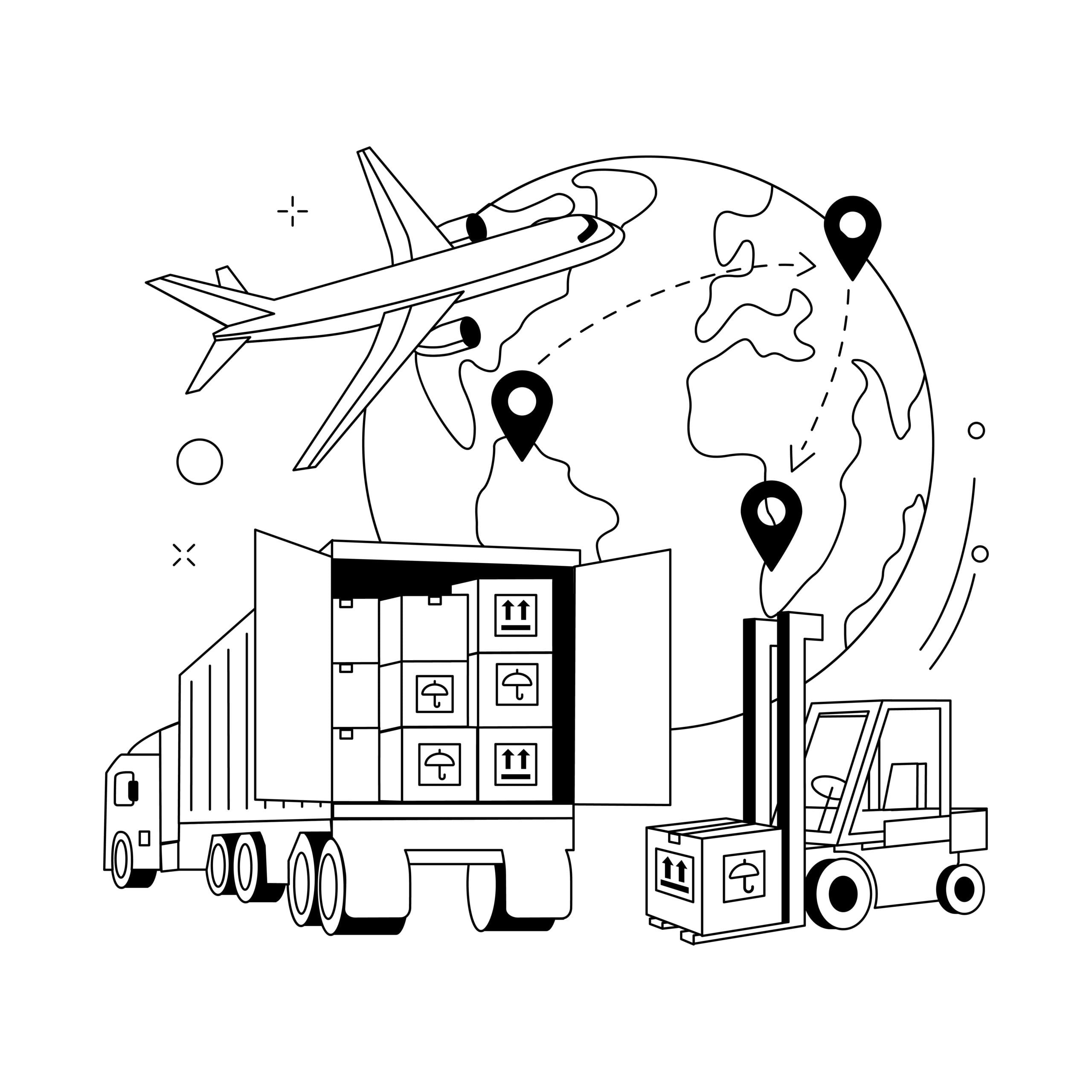Are you looking for a way to make your supply chain more efficient? Maybe it is time to implement a supply chain software to support your business’ growth? In order to make such a decision it is important to first understand what types of softwares are available and how to choose the one that will be the best for your company.
In this article we will introduce you to the basic knowledge regarding supply chains and supply chain tools.
Supply chain simply explained
Think of a supply chain as of a net. A vast net knitted out of cooperating companies, manufacturers, distributors and deliverers, including services, people, information, entities and resources.
Supply chain starts once a client places their order. Customer service, product development, marketing, operations and finances are all part of this process. The most important thing to acknowledge is, that even if only one component of the supply chain fails, it is going to have an impact on the whole net and every single element of it. Due to that reason supply chains require reliable management tools.
One of the important parts of every supply chain is logistics. Logistics is responsible for planning and controlling the movement of products and services from the starting point to the final destination.
To successfully find its way in this net-labyrinth, every element of the net needs to be able to navigate through it. And that is exactly what supply chain management tools do. They help to find the best, most optimal and efficient route for supplies. A good management of the supply chain can minimize the costs and maximize the competitive strength of any company.
The types of supply chains

There are a few different types of supply chains that need to be first discussed before moving on to choosing the best one for your business:
Continuous flow model is the best choice for companies that are manufacturing one specific product and its varieties. This model is focused on controlling the stock and warehouses.
Fast chain model is used by companies that are basing their offer on current trends. Their goal is to be the first ones on the market. Therefore, their supply chain is prioritizing speed over quality, e.g. fast fashion chain stores.
Flexible model is dedicated to companies that are specialized in seasonal products. They quickly switch from no production to a high production. The process must start and end in a short period of time. This model must be able to handle the intensity of production, and prepare accurate forecasts for requisition, costs and resources.
Depending on the needs and structure of the company, different types of supply chains are to be chosen.
Types of supply chain softwares

Searching for the best supply chain software that would suit your needs, you might have come across a few enigmatic terms, such as ERP, CRM and SCM. Here is a short explanation of their meanings:
ERP: Enterprise Resource Planning
ERP tools are used for quick and efficient data management within the system. They allow companies to store and analyze data. Commercial ERP systems are dedicated to big companies, while the open-source ones are most often used by smaller businesses. Open-source ERP are usually created in the form of web applications.
CRM: Customer Relationship Management
CRM software’s main purpose is to organize information about customers and leads, including the details and history of transactions, customer’s place or status in the sale process, tracking of earnings and costs, providing analytics and forecasts, etc. Open-source CRM requires only a web server, database, and a browser.
SCM: Supply Chain Management
SCM systems are focused on management between businesses and locations, including the movement of materials, inventory management, and processing the materials into finished goods. Its mission is to minimize total costs with respect to existing conflicts among all the chain partners.
Using a SCM software helps companies in entering the global or internet market, because it measures performance globally and leverages worldwide logistics. It also synchronizes supply with demand, minimizing losses and increasing productivity.
Efficiency and cooperation are two main goals of SCM. It knits a net of entities of which every single one is concentrating on their own speciality, together delivering high-quality, professional parts of the service, that is coordinated by the SCM system. It is most often used in engineering, logistics and marketing fields.
SCM is usually integrated with ERP and CRM, to achieve the best possible results.
What are the benefits of using supply chain softwares?

There are various benefits that come from using supply chain softwares. Here are a few examples:
- better collaboration with suppliers;
- higher quality control;
- shipping optimisation;
- more agile business;
- better data analytics;
- reduced costs;
- stronger cash flow.
How to choose the right supply chain software for your business?
In order to make the right choice you need to first examine your company’s needs and priorities. Investigate what type of supply chain software does your business need and what are your expectations about its functionality. Decide whether you prefer using an open source or a paid solution. It might be also helpful to notice the following characteristics while searching for the software:
- Does the software offer additional modules, or plugins and add-ons only?
- Does the software have good reviews?
- Does the software offer support, either paid or provided by a community?
- Is this software customizable to the client’s needs?
- Is this software’s interface intuitive and easy to use?
- Does this software offer a free trial version?
- What functionalities and modules does this software offer?
Checking these fundamental factors can make it easier to select the right software for your company. These are just the basic information on the complex world of supply chain softwares.
To find out more about the topic, we encourage you to read our other articles on open-source supply chain management softwares:
OpenLMIS: Large-Scale Health Supply Chain Management Tool
OpenBoxes: The Most Flexible Supply Chain Management Tool
Sources
5 open source software tools for supply chain management
Top 8 Open-Source Supply Chain Management Software




